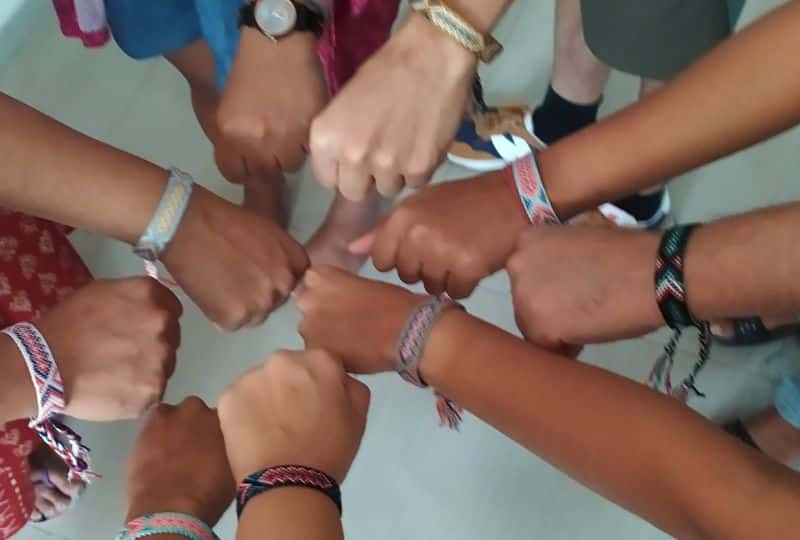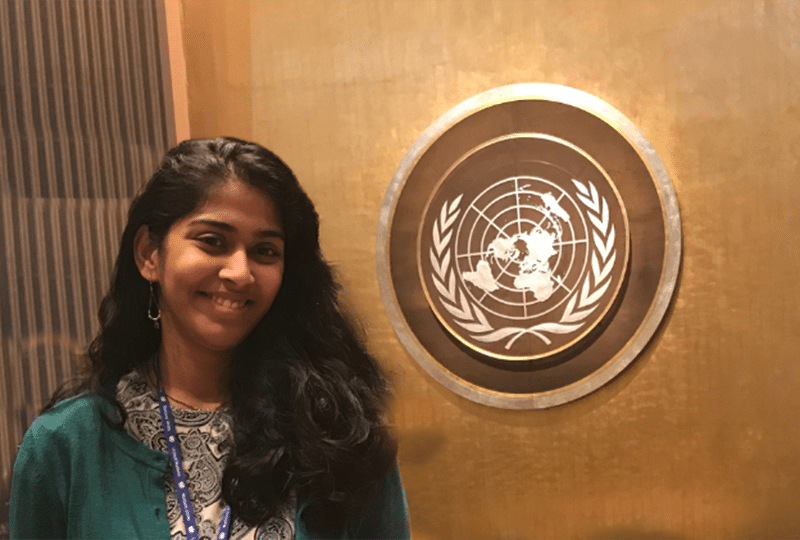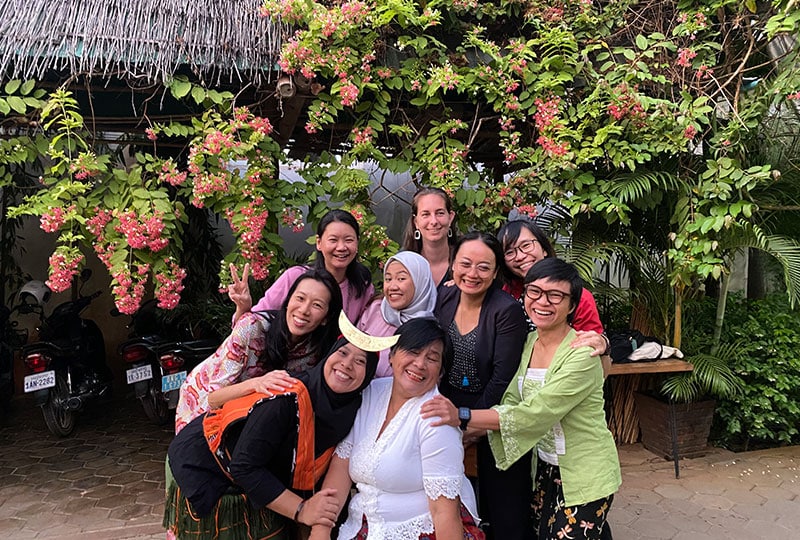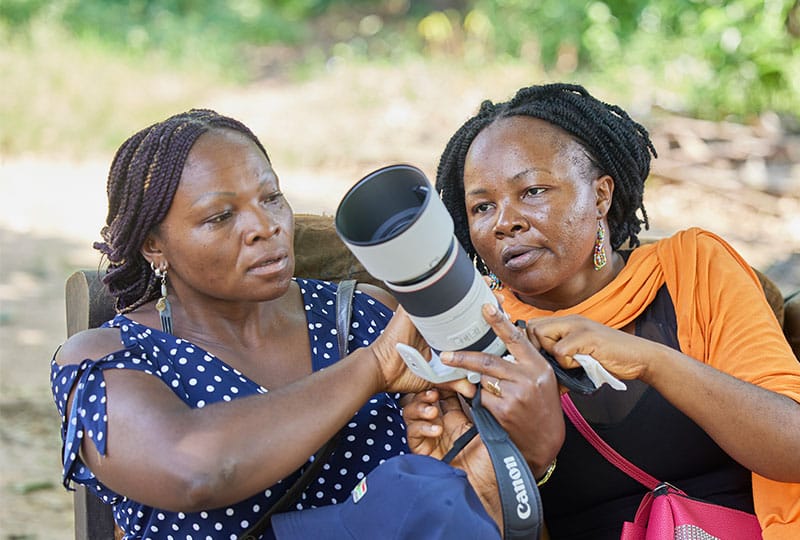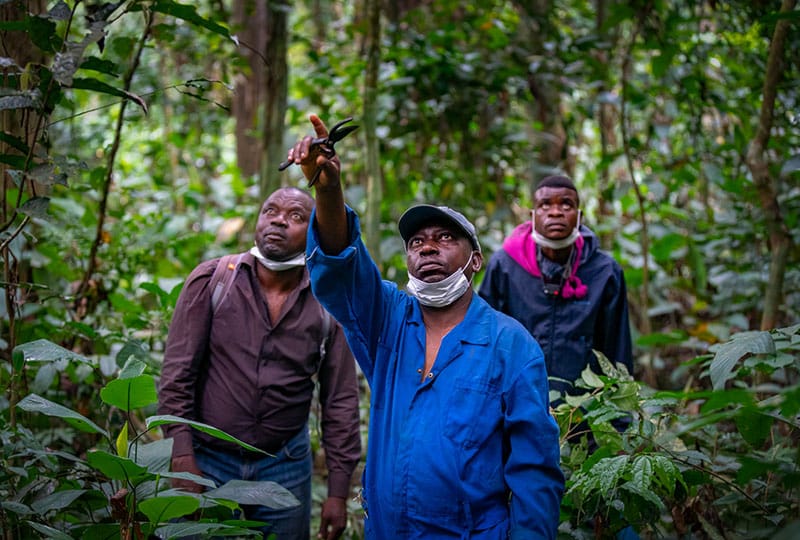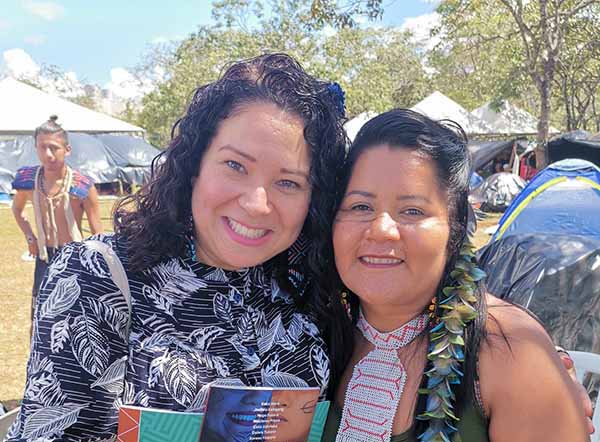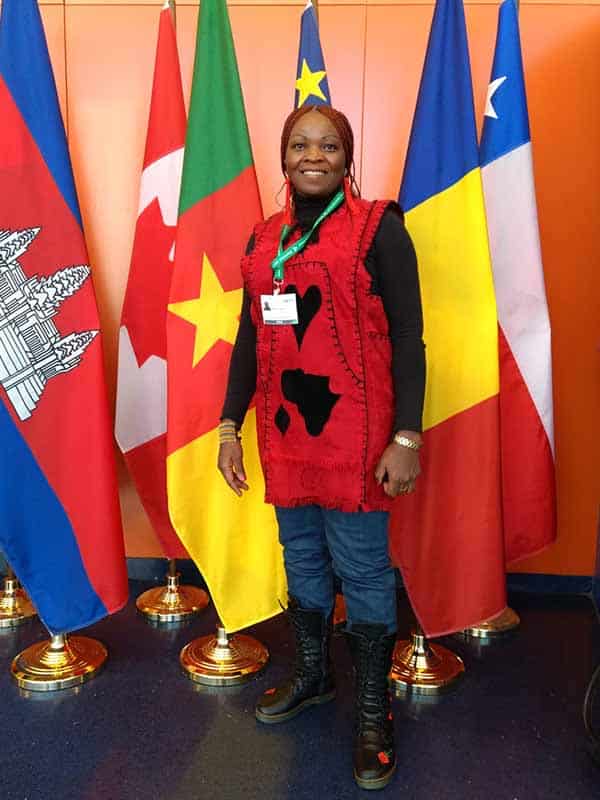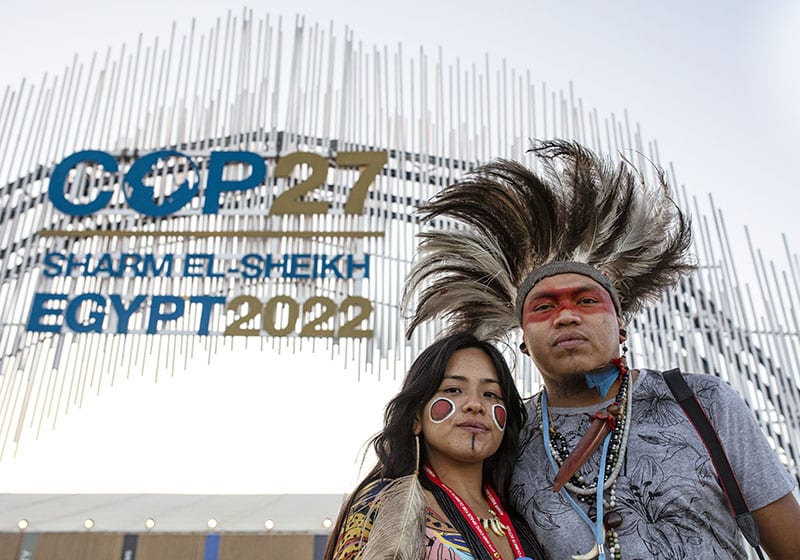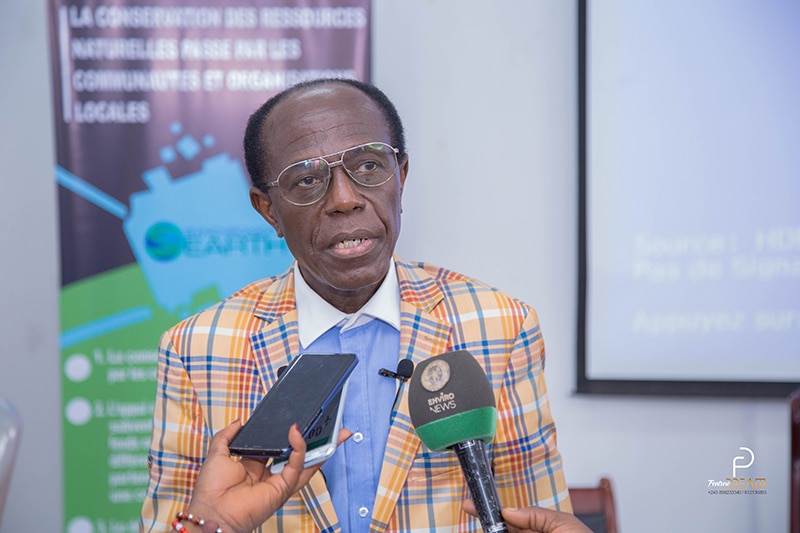Championing diverse voices
Getting the right people in the room
All too often, the right people are not in the room. When big policy decisions are being made about how we treat nature, the people who will be most affected are not even consulted. Forums where the use of land, water, and nature on local, regional, and global levels are being discussed frequently lack input from ethnic groups, women, disabled people, and youth, who find themselves excluded. Consequently, the actions taken (however well-meaning) often only benefit a select few or, worse, have unintended negative consequences which could have been foreseen.
Local communities dependent on their lands and waters for their livelihoods find fences built for protected areas before they have any opportunity to advocate for their right to access the land they rely upon. Indigenous Peoples whose ways of life and cultures are intrinsically linked with their rivers learn that the government has approved a new hydropower dam without considering the cultural and ecological impact. It is critical that the perspectives of the communities who know the land best and depend on healthy ecosystems are are empowered to influence the decisions which will impact their futures.

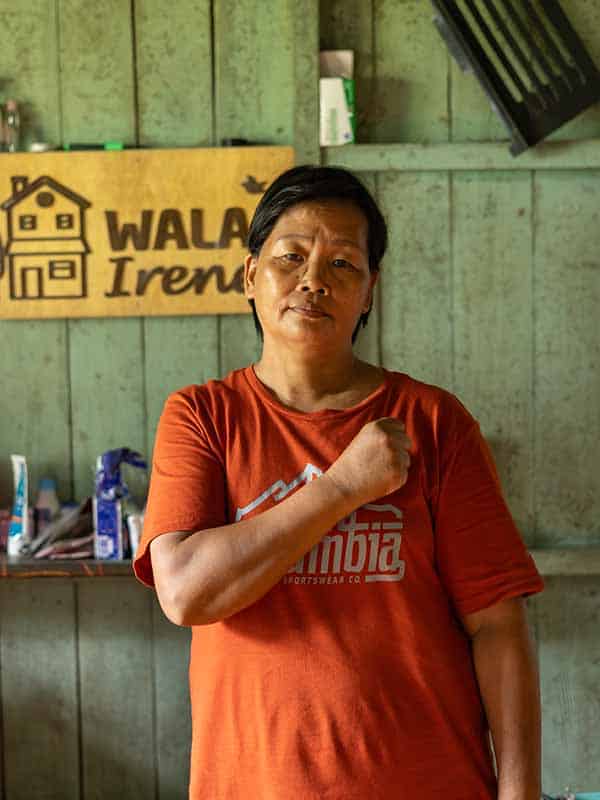
Members of the Dusun community, in the Papar region of Malaysian Borneo, are working with Synchronicity Earth partner TAKAD to protect their land under threat from the Kaiduan dam project. Image © Chris Scarffe
Deeper engagement in conservation forums
Many of our partners recognise the potential impact of engaging in these decision-making spaces, but they can sometimes struggle to access them. They may lack the financial support to attend, have difficulty with the various visa requirements, or experience language issues. By the support we have provided over time, we have learned more about some of the barriers which can prevent organisations, communities, and individuals invested in these decisions from being welcomed into local, regional, and global forums.
For international events such as United Nations Conferences of the Parties, these are usually held in Europe, North America, or other wealthy countries with stringent visa requirements. It can take months to arrange a visa, but often the event organisers do not account for this when they are opening registration, arranging speakers, or sending the UN accreditation that attendees use for their visa applications. After all of this, sometimes the visas are not granted at all due to biases against visa applications from certain countries.
The costs of travel and accommodation for these trips in expensive urban centres can also be prohibitive. Many smaller groups struggle to obtain funding for work that is not specifically aimed at a particular project, and can have difficulty raising the necessary funds to enable them to attend global environmental conferences. This can be a particular issue for young activists, as proof of financing their stay may not be granted in time for their visa appointment (which may need to be months in advance).
The paperwork that needs to be provided for visas, as well as applications for funding, provides a heavy workload to planning these trips which can prevent people from being able to do their usual roles or contribute to burnout well before the trip even begins.
Given the long history of a lack of inclusion for many of these groups in these events, there is a distinct lack of support for their particular needs. Even from the start, smaller, community-led groups are sometimes unfamiliar with what are often very bureaucratic systems and processes required to register and attend these types of conferences. If they do attend, they may not speak the dominant languages fluently, be given appropriate briefings or provided with opportunities during the events in order to engage meaningfully on the topics which matter most to them.
Providing support to engage in global dialogues
Through our capacity work, we aim to bring people together, facilitating shared learning and providing opportunities to meet other people and groups engaged in similar work, who often face similar challenges. We want to connect local organisations with opportunities to engage with global research and policy and create mutually beneficial knowledge exchanges, and we have also supported groups to consult or hire legal professionals, where this can help to support their work.
Case study: Advocating for community rights on the global stage
In December 2022, the world’s largest and most important global gathering on biodiversity convened at the UN Convention on Biological Diversity conference (COP15) in Montreal, Canada. We were pleased to be able to send four individuals from our Congo Basin Programme (partners and affiliates) to the conference to represent the voices of forest peoples from the region.
One important achievement of the advocacy work conducted by Indigenous Peoples and Local Communities (IPLCs) and their representatives – including Synchronicity Earth’s partners – was the incorporation of IPLC rights into many of the key targets agreed on at COP15.
Examples such as this demonstrate that supporting external engagement capacity is crucial to helping partners participate in decision-making forums, whether it be at the local, regional, or international level. Beyond being able to represent their organisations in policy conversations, these occasions serve a key opportunity for knowledge sharing, network building, and coalition strengthening.
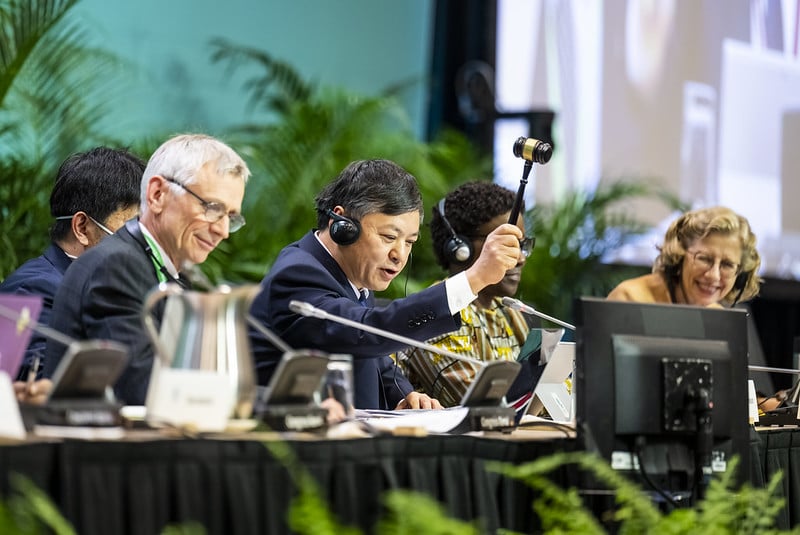
Scene from the closing plenary session at UN CBD COP15 in Montreal, Canada. Global forums for decisions on climate and biodiversity have historically been challenging to access for many groups from the Global South, Indigenous Peoples, and youth. Image: UN Biodiversity CC-BY-2.0
Influencing local and national policy making
Many of the partners we support are challenging damaging development decisions that impact them and the ecosystems on which their livelihoods depend. This often involves advocacy work at the local and national level to governments and the private sector.
This requires skills and knowledge outside of traditional conservation approaches. For example, communities and civil society organisations need to be aware of and take advantage of legislation that protects them, better understand legal and political processes, and know how to engage with these successfully.
Case study: Championing effective advocacy
Comisão Guaraní Yvyrupa (CGY)
Communities need to be able to access and take advantage of legislation that protects them. They also need support to challenge damaging development decisions that impact them. For example, in Brazil our partner CGY has built a team of Indigenous and non-Indigenous lawyers to represent the Guarani in cases that might affect their land rights, to support communities to demarcate the land, to monitor legislative processes that may affect Guarani communities, and to register illegal invasions of their territory.
CGY also focuses on sustaining the cultural heritage, mental health, spiritual wellbeing, and cosmovision of the Guarani – all factors which are essential to maintaining the communities’ strength for this struggle.
For example, CGY are currently representing Avá Guarani communities in a civil action lawsuit regarding the Itaipu dam, the third largest hydroelectric dam in the world which was completed in 1984. It sits on the border of Brazil and Paraguay on the Paraná River and is constructed without consent on Guarani territory – the reservoir, the 45th largest in the world – has destroyed a vast area and subsumed Guaíra falls which was once the largest waterfall in the world by volume, displaced approximately 10,000 families, and necessitated the liquidation of Guaíra Falls National Park. CGY are seeking reparations for the families whose homes were destroyed and return of the surrounding land.
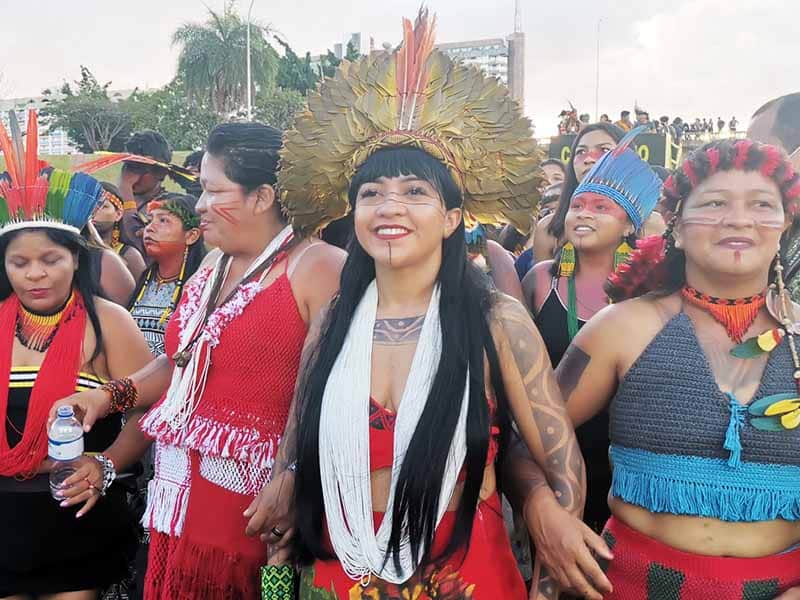
At the APIB (Articulacão dos Povos Indígenas do Brasil) Free Land Camp march with CGY in Brasilia, 2022. Image © Grace Iara Souza
We don’t separate anything from nature, we believe that everything is nature. Everything that breathes, that is alive, the land, or elements, is part of nature and a part of us.
Kerexu Yxapyry, one of the main female leaders of the National Articulation of the Indigenous Peoples in Brazil (APIB)
Capacity News
If you are interested in supporting our work to champion diverse voices to protect and restore biodiversity, contact us:


